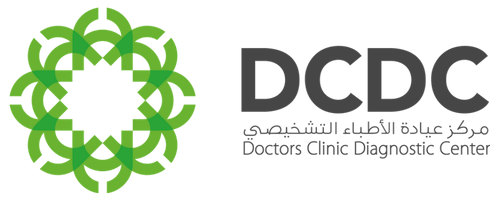Introduction
Cardiovascular health is a cornerstone of overall well-being, as the heart and blood vessels play a crucial role in maintaining the body’s essential functions. Heart disease remains one of the leading causes of mortality worldwide, making it imperative to adopt a comprehensive strategy for heart health. This approach encompasses various lifestyle modifications, dietary changes, regular physical activity, stress management, and medical interventions when necessary. By understanding and implementing these strategies, individuals can significantly reduce their risk of heart disease and improve their quality of life.
Understanding Cardiovascular Health
Cardiovascular health refers to the proper functioning of the heart and blood vessels, ensuring efficient circulation of blood, oxygen, and nutrients throughout the body. The cardiovascular system comprises the heart, arteries, veins, and capillaries, all of which must work harmoniously to sustain life. A healthy cardiovascular system helps prevent various diseases, including coronary artery disease, hypertension, heart failure, and stroke.
Risk Factors
Several risk factors contribute to the development of cardiovascular diseases. These include:
1. Genetic Predisposition:
A family history of heart disease increases the likelihood of developing similar conditions.
2. Age and Gender:
Risk increases with age, and men are generally at higher risk than premenopausal women.
3. Lifestyle Choices:
Poor diet, physical inactivity, smoking, and excessive alcohol consumption significantly elevate cardiovascular risk.
4. Medical Conditions:
Hypertension, diabetes, obesity, and high cholesterol levels are critical risk factors.
The Importance of a Holistic Approach
Adopting a holistic approach to heart health involves considering all aspects of lifestyle and well-being. It is not enough to focus on one area, such as diet or exercise; instead, a comprehensive strategy addresses multiple factors simultaneously to achieve optimal results.
Dietary Changes
A heart-healthy diet is one of the most effective ways to improve cardiovascular health. Certain dietary patterns have been shown to reduce the risk of heart disease and promote overall well-being.
The Mediterranean Diet
The Mediterranean diet, rich in fruits, vegetables, whole grains, nuts, seeds, and healthy fats, has been extensively studied for its cardiovascular benefits. This diet emphasises:
1. Healthy Fats:
Olive oil, nuts, and fatty fish provide essential omega-3 fatty acids, which help reduce inflammation and improve heart health.
2. Plant-Based Foods:
High in fibre, antioxidants, and essential nutrients, fruits and vegetables support overall cardiovascular function.
3. Lean Proteins:
Fish, poultry, legumes, and beans are excellent sources of protein that promote heart health without the saturated fats found in red meat.
4. Moderate Dairy:
Low-fat or fat-free dairy products can be included in moderation.
5. Limited Red Meat and Sweets:
Reducing the intake of red meat, processed meats, and sugary foods helps lower cholesterol levels and prevent weight gain.
DASH Diet
The Dietary Approaches to Stop Hypertension (DASH) diet is another well-regarded eating plan for heart health. It emphasises reducing sodium intake and increasing the consumption of nutrient-rich foods. Key components include:
1. Low Sodium:
Limiting salt intake helps control blood pressure, a major risk factor for heart disease.
2. High Potassium:
Foods like bananas, potatoes, and spinach are rich in potassium, which helps balance sodium levels and maintain healthy blood pressure.
3. Whole Grains:
Whole grains like brown rice, quinoa, and whole wheat bread provide essential fiber and nutrients.
4. Lean Proteins:
Similar to the Mediterranean diet, the DASH diet recommends lean proteins, such as poultry, fish, and legumes.
5. Low-Fat Dairy:
Incorporating low-fat or fat-free dairy products supports heart health without adding excessive saturated fats.
Regular Physical Activity
Physical activity is crucial for maintaining a healthy cardiovascular system. Regular exercise helps improve heart function, reduce blood pressure, and manage weight. The American Heart Association recommends at least 150 minutes of moderate-intensity aerobic activity or 75 minutes of vigorous-intensity activity per week, along with muscle-strengthening activities on two or more days per week.
Types of Exercise
1. Aerobic Exercise:
Activities like walking, running, cycling, and swimming improve cardiovascular endurance and overall heart health.
2. Strength Training:
Lifting weights or using resistance bands helps build muscle, reduce body fat, and improve metabolism.
3. Flexibility and Balance:
Yoga and stretching exercises enhance flexibility, reduce stress, and improve overall physical function.
Benefits of Regular Exercise
1. Improved Heart Function:
Exercise strengthens the heart muscle, enhancing its ability to pump blood efficiently.
2. Lower Blood Pressure:
Physical activity helps maintain healthy blood pressure levels, reducing the risk of hypertension.
3. Weight Management:
Regular exercise aids in weight loss and weight maintenance, both of which are critical for heart health.
4. Stress Reduction:
Physical activity releases endorphins, which help alleviate stress and improve mood.
5. Better Cholesterol Levels:
Exercise increases HDL (good) cholesterol and reduces LDL (bad) cholesterol, promoting a healthier lipid profile.
Stress Management
Chronic stress has a significant impact on cardiovascular health. High levels of stress can lead to increased blood pressure, elevated cholesterol levels, and unhealthy coping mechanisms such as overeating or smoking. Implementing effective stress management techniques is essential for maintaining a healthy heart.
Techniques for Stress Management
1. Mindfulness and Meditation:
Practising mindfulness and meditation helps reduce stress, improve focus, and enhance overall well-being.
2. Deep Breathing Exercises:
Deep breathing techniques can lower heart rate and blood pressure, promoting relaxation.
3. Physical Activity:
Regular exercise is an excellent way to relieve stress and improve mood.
4. Adequate Sleep:
Ensuring sufficient and quality sleep is crucial for stress reduction and overall health.
5. Social Support:
Building and maintaining strong social connections can provide emotional support and reduce feelings of stress and anxiety.
Avoiding Tobacco and Limiting Alcohol
Smoking is one of the most significant risk factors for cardiovascular disease. It damages the blood vessels, reduces oxygen in the blood, and increases the risk of blood clots. Quitting smoking is one of the most effective ways to improve heart health. Similarly, excessive alcohol consumption can lead to high blood pressure, heart failure, and other cardiovascular issues. Limiting alcohol intake to moderate levels is essential for maintaining heart health.
Tips for Quitting Smoking
1. Seek Support:
Join a smoking cessation program or support group to receive guidance and encouragement.
2. Nicotine Replacement Therapy:
Consider using nicotine patches, gum, or lozenges to help manage withdrawal symptoms.
3. Avoid Triggers:
Identify and avoid situations or activities that trigger the urge to smoke.
4. Stay Active:
Engage in physical activities to distract yourself from cravings and reduce stress.
5. Professional Help:
Consult a healthcare provider for personalised advice and potential medication to assist in quitting smoking.
Alcohol Consumption Guidelines
1. Moderation:
Limit alcohol intake to no more than one drink per day for women and two drinks per day for men.
2. Healthy Choices:
Opt for red wine, which contains antioxidants like resveratrol, which may have heart-protective effects, in moderation.
3. Alcohol-Free Days:
Incorporate alcohol-free days into your weekly routine to reduce overall consumption.
Regular Health Screenings
Regular health screenings are essential for early detection and management of cardiovascular risk factors. Routine check-ups with a healthcare provider can help monitor blood pressure, cholesterol levels, blood sugar levels, and other important indicators of heart health. Early intervention and treatment can prevent the progression of heart disease and improve outcomes.
Key Health Screenings
1. Blood Pressure:
Regular monitoring of blood pressure is crucial for detecting hypertension and managing it effectively.
2. Cholesterol Levels:
Lipid profile tests measure total cholesterol, LDL cholesterol, HDL cholesterol, and triglycerides.
3. Blood Sugar Levels:
Screening for diabetes and prediabetes can help prevent complications associated with high blood sugar levels.
4. Body Mass Index (BMI):
Assessing BMI helps determine if an individual is at a healthy weight, overweight, or obese.
5. Electrocardiogram (ECG):
An ECG can detect irregular heart rhythms and other cardiac abnormalities.
Medical Interventions
In some cases, lifestyle modifications alone may not be sufficient to manage cardiovascular risk factors. Medical interventions, including medications and surgical procedures, may be necessary to achieve optimal heart health.
Medications
1. Antihypertensives:
Medications such as ACE inhibitors, beta-blockers, and diuretics help manage high blood pressure.
2. Statins:
These drugs lower cholesterol levels and reduce the risk of heart disease.
3. Antiplatelet Agents:
Medications like aspirin help prevent blood clots and reduce the risk of heart attacks and strokes.
4. Antidiabetic Medications:
For individuals with diabetes, medications help control blood sugar levels and reduce cardiovascular risk.
Surgical Procedures
1. Angioplasty and Stenting:
These procedures open blocked arteries and restore blood flow to the heart.
2. Coronary Artery Bypass Grafting (CABG):
This surgery creates new pathways for blood to flow around blocked arteries.
3. Implantable Devices:
Pacemakers and defibrillators help regulate heart rhythms and prevent sudden cardiac events.
Conclusion
A comprehensive strategy for heart health involves a multifaceted approach that includes dietary changes, regular physical activity, stress management, avoiding tobacco and excessive alcohol, regular health screenings, and medical interventions when necessary. By adopting these strategies, individuals can significantly reduce their risk of heart disease and improve their overall well-being. Heart health is a lifelong commitment, and taking proactive steps today can lead to a healthier, happier future. Remember, it’s never too late to start making positive changes for your heart.




